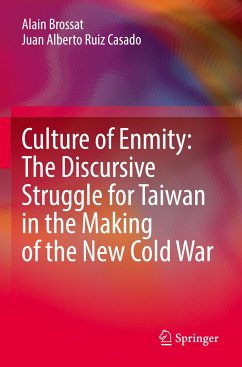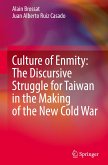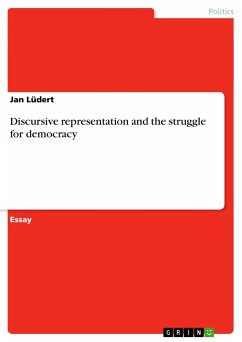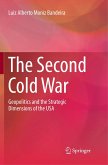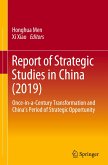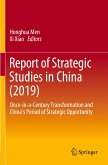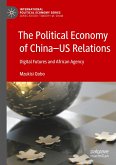This book provides a thought-provoking analysis of the perception of China as a formidable threat amidst the current era of socio-political polarization and growing militarization. By exploring the discursive strategies and tactics employed to cultivate antagonism, it unveils the "culture of enmity" that fosters fear and distrust towards China, both in Taiwan and beyond. Drawing on interdisciplinary research, the book delves into the ontological characteristics of such a culture and provides insights into the Taiwan conflict as a crucial observation post for understanding the intricate discursive dynamics of the New Cold War.
The geopolitical situation of Taiwan presents a predicament as it finds itself at the crossroads of two conflicting realms. On one hand, it is deeply intertwined with Chinese culture and history, with the added dimension of its strategic proximity to China at a time when the latter aspires to become a regional hegemon. On the other hand, Taiwan boasts a Western-influenced political system, Western-leaning strategic alliances, and a distinct political identity forged over the past few decades. It is within this intricate interplay of apparently dissonant but overlapping factors that the thorny and challenging nature of the discursive struggle for Taiwan becomes apparent.
The book consists of a collection of articles initially created by the authors during their research in Taiwan over several years, first at National Yang Ming Chiao Tung University and then at National Cheng Kung University. The articles, organized into different chapters, cover various disciplines such as political philosophy, geopolitics, history, discourse analysis, and anthropology, reflecting the diverse educational backgrounds of the authors. Despite their diversity, all chapters are deeply connected to the discursive struggle over Taiwan. Ultimately, by offering a nuanced perspective that challenges prevailing narratives, the authors provide adeliberately controversial yet refreshing viewpoint that advocates for a policy of empathy and negotiation. Such approach goes beyond mere dialogue and diplomacy, emphasizing the need for coexistence and peaceful living among different "worlds".
The geopolitical situation of Taiwan presents a predicament as it finds itself at the crossroads of two conflicting realms. On one hand, it is deeply intertwined with Chinese culture and history, with the added dimension of its strategic proximity to China at a time when the latter aspires to become a regional hegemon. On the other hand, Taiwan boasts a Western-influenced political system, Western-leaning strategic alliances, and a distinct political identity forged over the past few decades. It is within this intricate interplay of apparently dissonant but overlapping factors that the thorny and challenging nature of the discursive struggle for Taiwan becomes apparent.
The book consists of a collection of articles initially created by the authors during their research in Taiwan over several years, first at National Yang Ming Chiao Tung University and then at National Cheng Kung University. The articles, organized into different chapters, cover various disciplines such as political philosophy, geopolitics, history, discourse analysis, and anthropology, reflecting the diverse educational backgrounds of the authors. Despite their diversity, all chapters are deeply connected to the discursive struggle over Taiwan. Ultimately, by offering a nuanced perspective that challenges prevailing narratives, the authors provide adeliberately controversial yet refreshing viewpoint that advocates for a policy of empathy and negotiation. Such approach goes beyond mere dialogue and diplomacy, emphasizing the need for coexistence and peaceful living among different "worlds".

